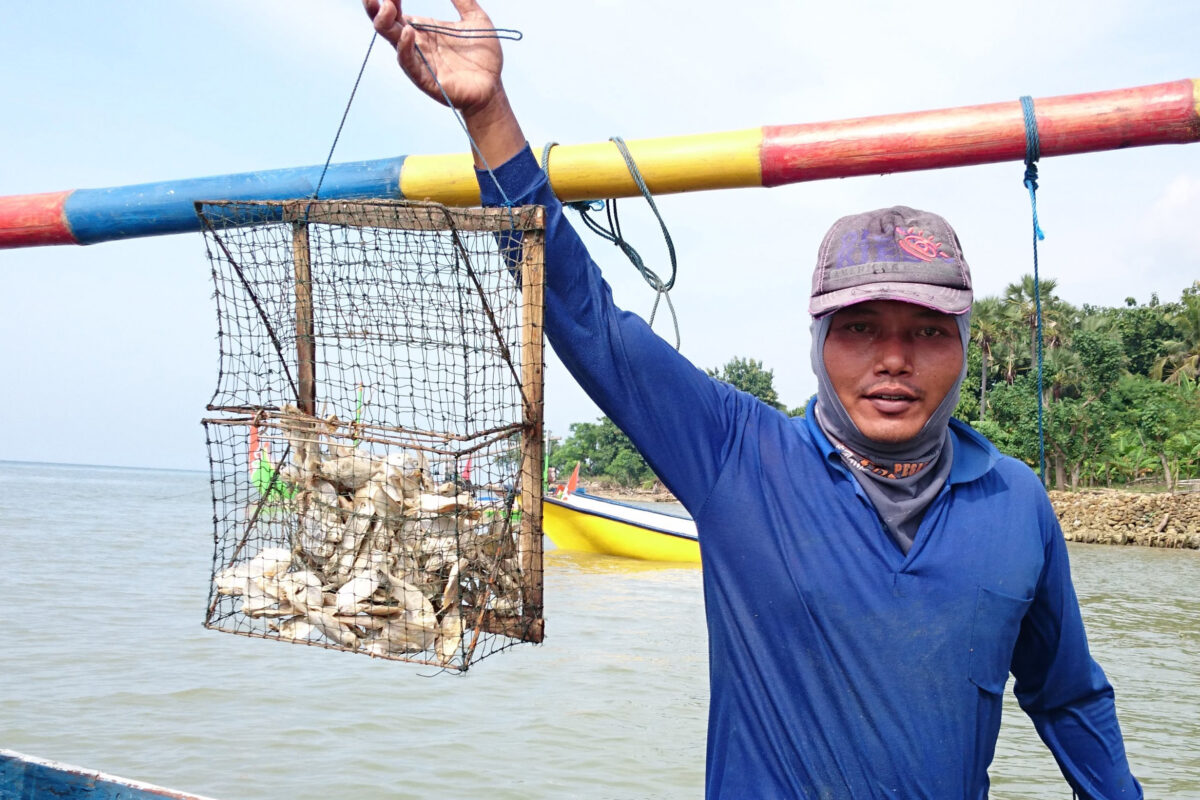Impact Stories
From fragmentation to collaboration: Empowering blue swimming crab fishers in Indonesia
Recognizing the vital link between community well-being and ecosystem health, a fishers network in Indonesia is paving the way for more sustainable, inclusive coastal fisheries management.
Indonesia’s blue swimming crab (BSC) fishery provides livelihoods for thousands of fishers and critical protein for millions of people, contributing nearly a quarter of global BSC production (FAO, 2023). The fishery is also deeply connected to fragile coastal ecosystems, including mangroves, that are essential for the survival of BSC juveniles and the long-term health of the fishery.
For years, small-scale BSC fishers operated without legal recognition, fragmented from each other and excluded from decisions that shaped their future. Coastal development, pollution, and unsustainable practices – driven by poverty and lack of alternatives – further threatened both livelihoods and the environment.
But that story is changing. With support from SFP, BSC fishers have organized into a legally recognized fishers’ network that has given them standing and a voice in decisions that affect their livelihoods, their communities, and the surrounding ecosystems.
A timeline of progress in the Indonesian BSC fishery
The emergence of Forkom Nelangsa
2020: During a stakeholder meeting on the national BSC management plan, 28 BSC fishers from across Indonesia come together to discuss their shared need for greater collaboration and a collective voice.
2020: In May, encouraged by government representatives and supported by SFP and partners, the fishers formally establish a national fishers’ network, the Forum Komunikasi Nelayan Rajungan Nusantara (Forkom Nelangsa). The Forkom starts with just 22 members and grows to 521 in the first year.
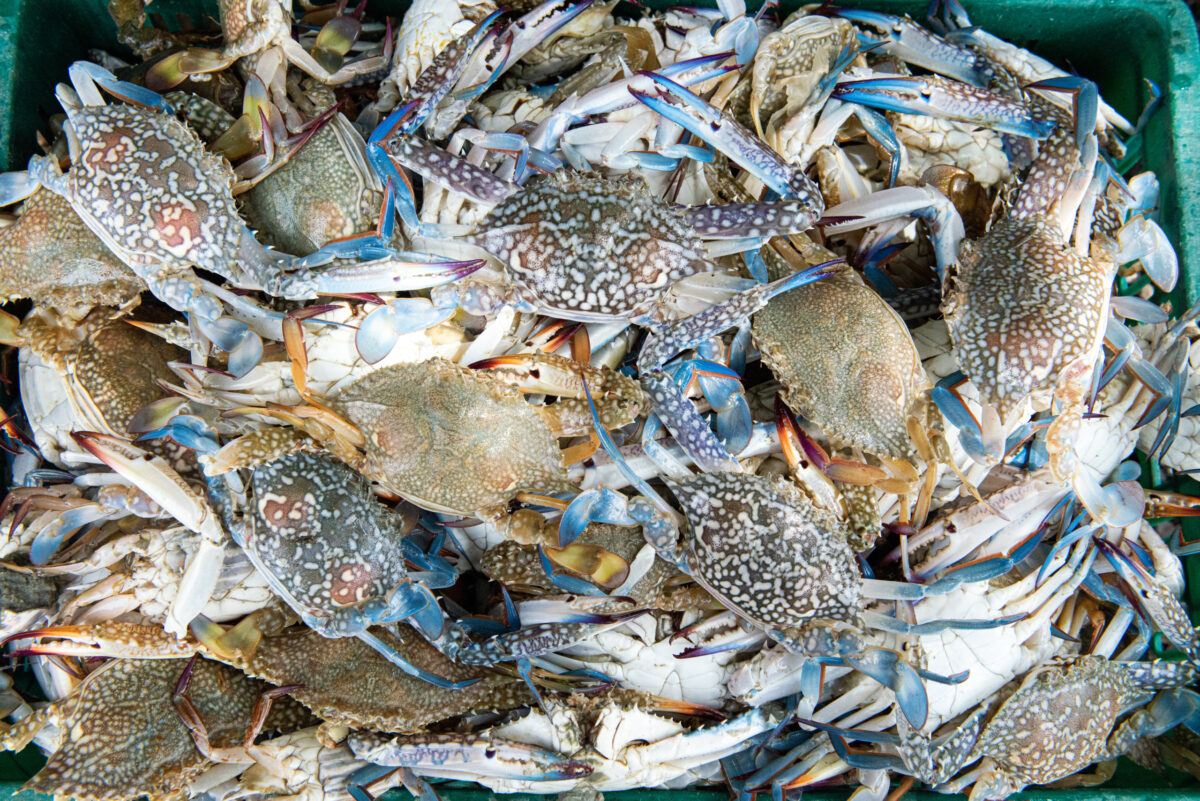
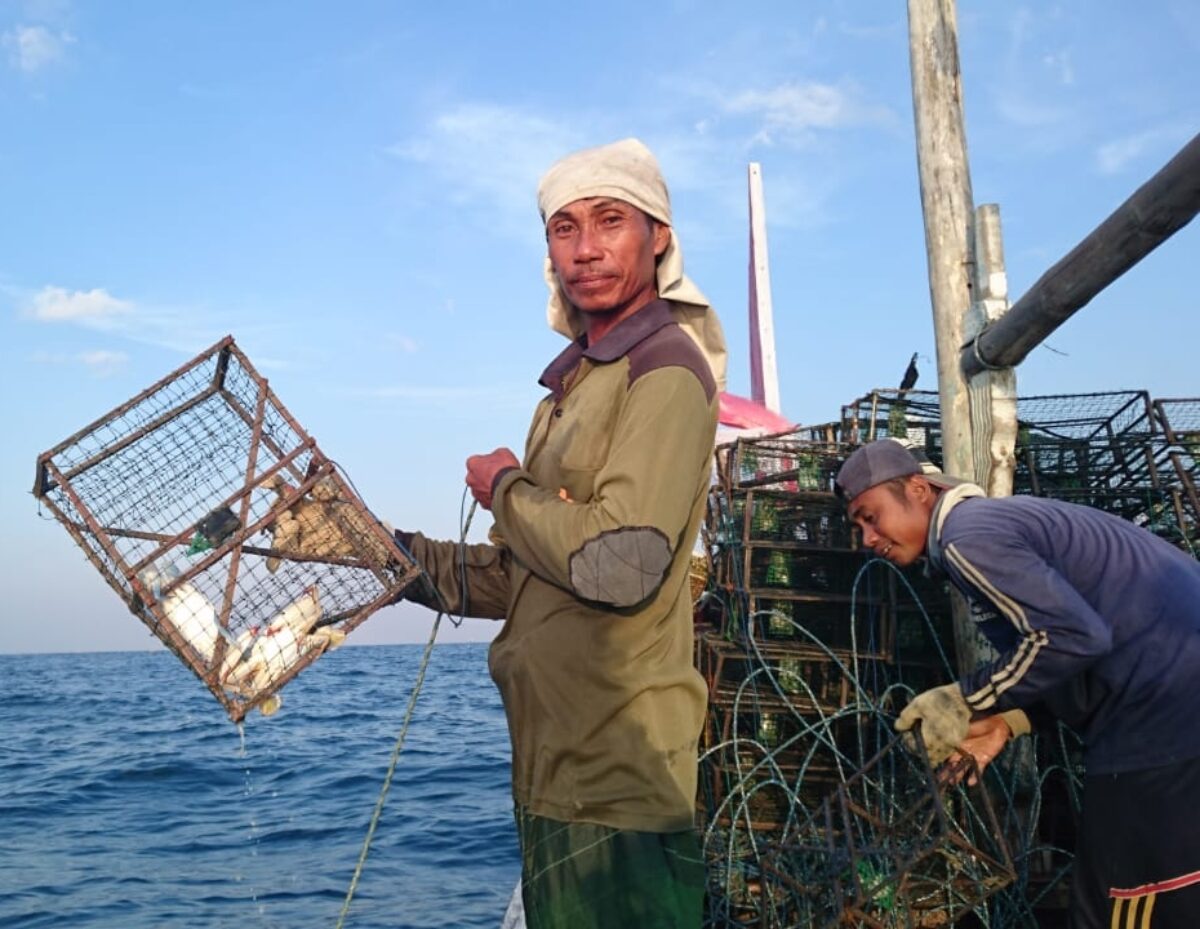
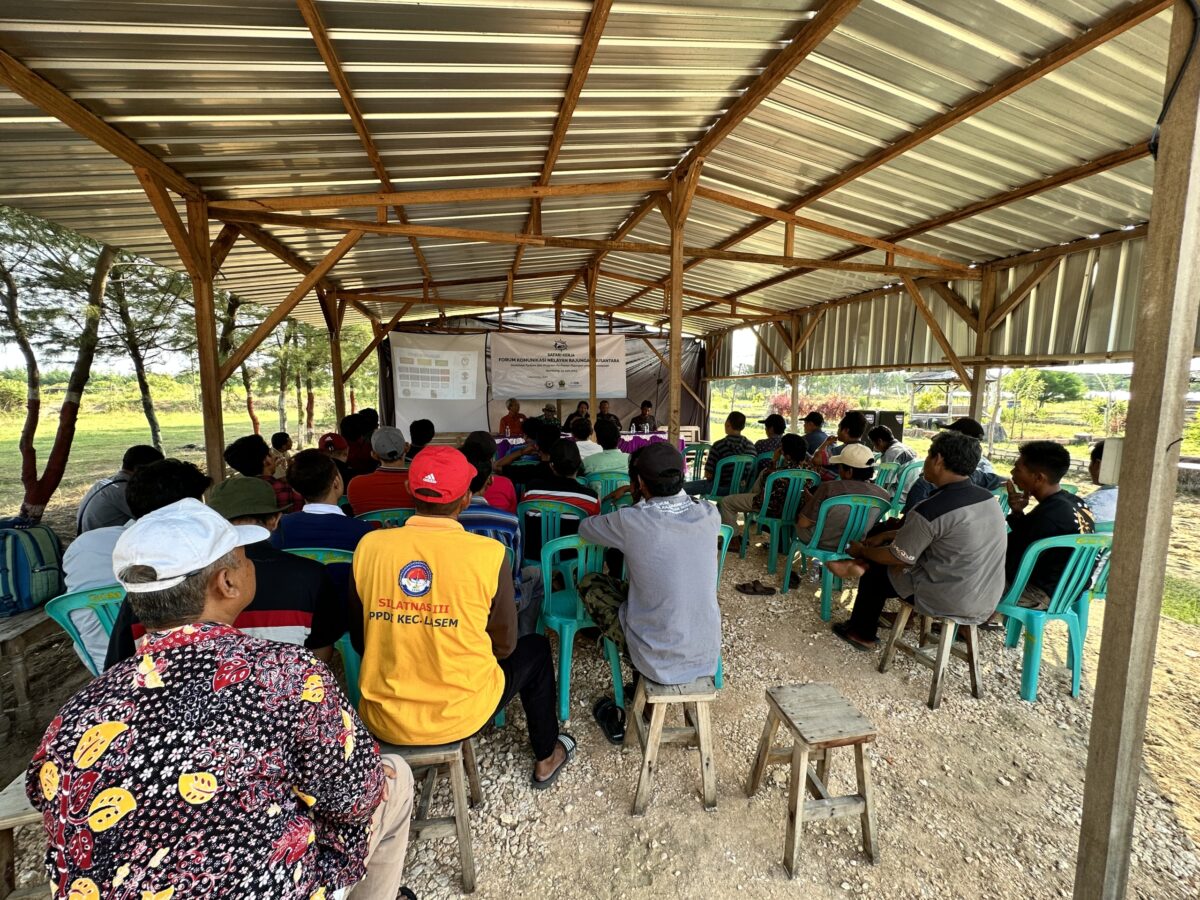
Tenure rights, legal recognition, and a seat at the table
2020: To improve legal recognition for BSC fishers, SFP supports the registration of fishers through the issuance of KUSUKA IDs and vessel registrations (PAS Kecil). These two forms of official recognition will allow fishers to legally access marine resources and participate in policy-making processes.
2022: Forkom Nelangsa participates in revising the Indonesian national BSC Fishery Management Plan.
2023: In May, Forkom Nelangsa receives official access to the KUSUKA database from the Ministry of Marine Affairs and Fisheries (MMAF), enabling it to independently register members and significantly speed up the issuance of KUSUKA cards.
2023-2024: Forkom Nelangsa achieves formal representation in the BSC Fishery Management Committee and Task Force of Central Java Province, established under regional decrees. With the support of SFP, Forkom members participate in decision-making meetings to shape the BSC action plan, in November 2023 and September 2024.
2024: Fisher and vessel registration efforts, primarily in Central Java and South Sulawesi, result in a steady increase of registered fishers and vessels, from 0 in 2020 to 793 fishers and 1,023 vessels in 2024. The Forkom expands to 1,206 members.
Contributing to evidence-based fisheries management
2023-2024: To support national data-collection efforts, Forkom Nelangsa submits 2023-24 BSC data to the Central Java Provincial Fisheries Agency (DKP), the district-level agencies in Jepara and Rembang, and the Ministry of Marine Affairs and Fisheries (MMAF).
2023: Forkom Nelangsa supports a national stock assessment by contributing data for modeling BSC stock using the Generalized Depletion Model.
2024: The Forkom contributes critical 2024 socioeconomic data to support development of Harvest Control Rules (HCRs). This data, analyzed jointly by SFP and BBRSEKP, will inform sustainable management strategies, with results expected in 2025.
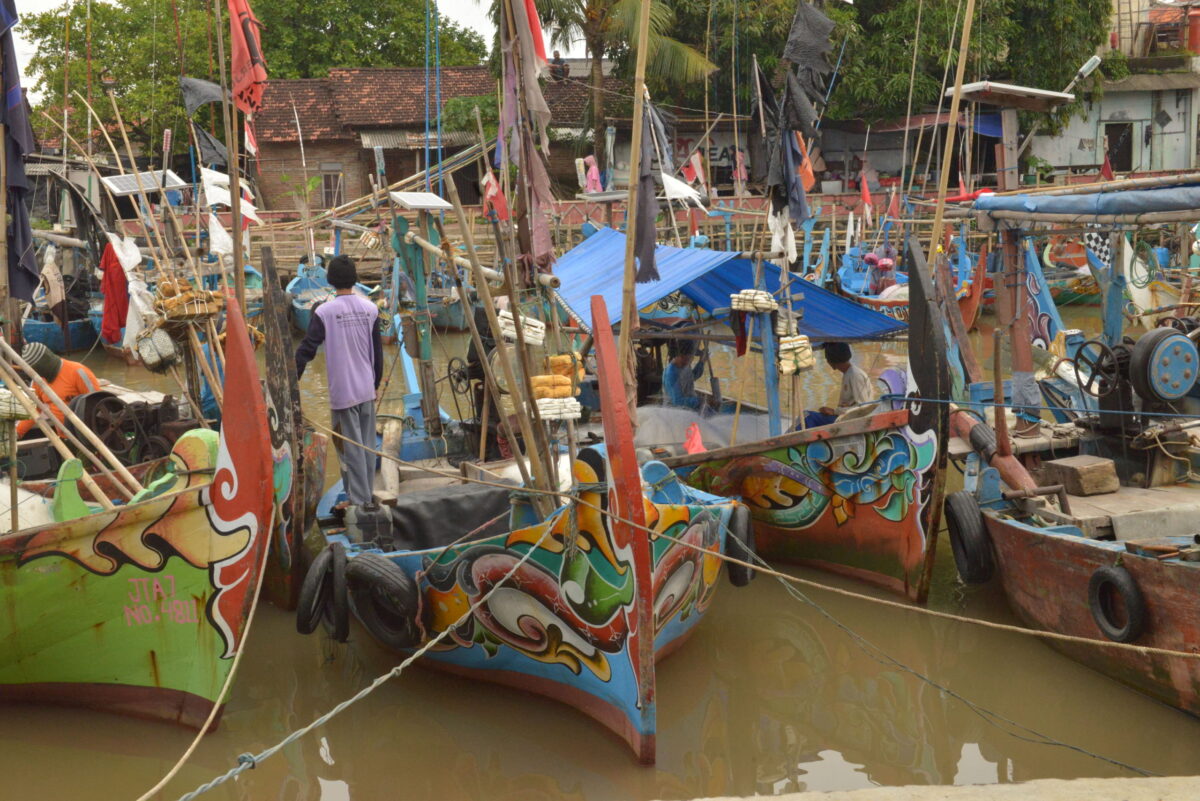
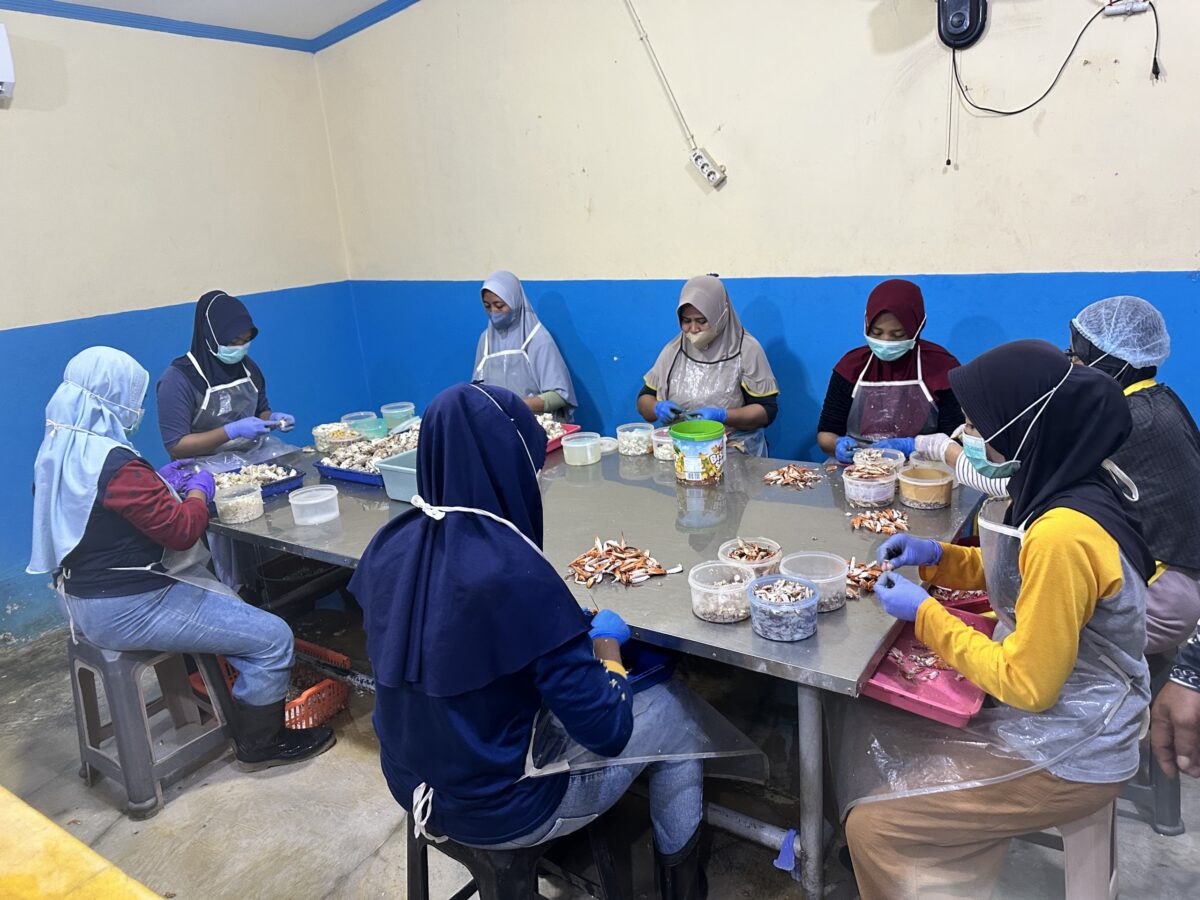
A new chapter: Business and community development
2024: In May, Forkom Nelangsa takes a major step toward economic empowerment with the launch of its business unit, Koperasi Berkah Rajungan Nusantara, established with support from SFP.
2024: With SFP’s assistance, the Koperasi secures government funding to build a BSC miniplant in Jepara, which begins operations in December.
2025: The miniplant achieves Good Manufacturing Practices (GMP) certification with a B rating, a key milestone that positions the cooperative for stronger market access and improved product quality.
QUOTE TO GO HERE
